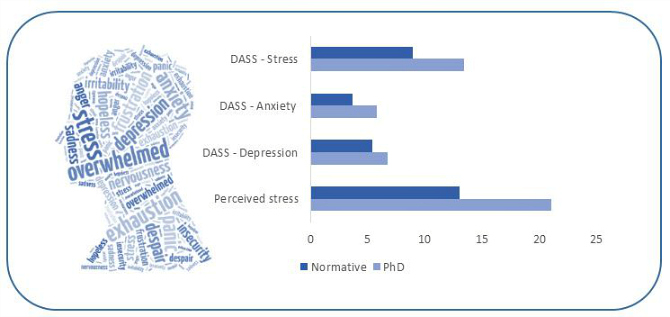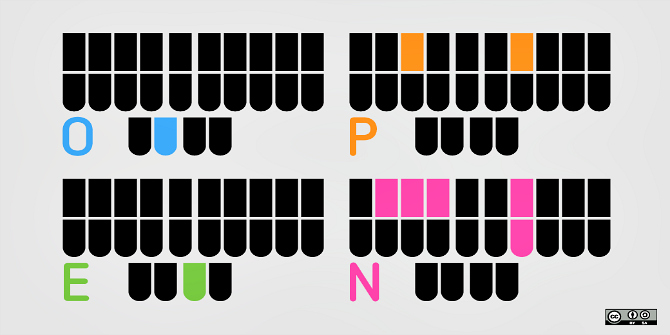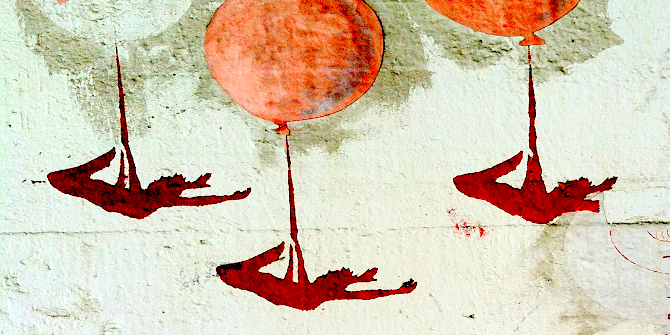 The difficulty of reaching practitioners and experts is one of the main challenges faced by early-career researchers in particular, and one that can overshadow fieldwork experiences and attempts to produce new knowledge. While researchers might feel that they are being ignored or treated as a nuisance by experts, the latter often have a different view of researchers’ attempt to reach them. Philipp Lottholz and Karolina Kluczewska share the perspectives of researcher and practitioner respectively, reveal the nuances and blind spots of interactions between the two, and suggest a way forward towards a more dialogical, collaborative approach.
The difficulty of reaching practitioners and experts is one of the main challenges faced by early-career researchers in particular, and one that can overshadow fieldwork experiences and attempts to produce new knowledge. While researchers might feel that they are being ignored or treated as a nuisance by experts, the latter often have a different view of researchers’ attempt to reach them. Philipp Lottholz and Karolina Kluczewska share the perspectives of researcher and practitioner respectively, reveal the nuances and blind spots of interactions between the two, and suggest a way forward towards a more dialogical, collaborative approach.
One issue to come to the fore during recent exchanges about research on non-governmental organisations (NGOs) and international organisations (IOs) in Central Asia was the difficulty of gaining insight into their activities and knowledge when doing field research. Many if not all researchers find it hard to collect rich empirical material during field trips. The struggles and dilemmas they are confronted with can relate to research ethics, safety of research participants, interlocutors or researchers themselves, and the emotional baggage accumulated from these and other fieldwork aspects.
Yet, accounts of these struggles, the search for solutions, and acknowledgement of failures tend not to make it beyond informal conversations and some reflective formats at academic conferences and blogs. Here we unpack the particular difficulty researchers encounter when trying to reach practitioners and experts in specific areas. We look at the issue – that researchers are treated like a nuisance in more or less obvious ways – from the perspective of both a researcher critically reflecting on fieldwork and that of a former practitioner. While we use the general term “NGOs” we understand this to include both national and international NGOs. By IOs we mean organisations with bilateral (e.g. DFID, GIZ) or intergovernmental mandates (such as the UN system or OSCE).
 Image credit: rawpixel.com, via Unsplash (licensed under a CC0 1.0 license).
Image credit: rawpixel.com, via Unsplash (licensed under a CC0 1.0 license).
Doing field research with/on NGOs: the researcher perspective (Philipp Lottholz)
Everyone who has done fieldwork in developing and peripheral countries will share this impression to some extent. It can be a greatly satisfying activity but is also marked by a lot of precarious moments. The fact that researchers are usually entirely dependent on the readiness of national and international organisations, institutions, or individuals to participate in their research often subjects them to a painful initial “trial and error” period. However, even once they get the trick, researchers are usually confined to a “scattered and shadowy presence in the field”. As Loyle and Simoni note in their article on researcher trauma, graduate students and junior researchers in particular may feel pressured to succumb to rigid timelines and carry out research despite the limitations and risks of their research framings and techniques. However, even if academics encounter access barriers and are sometimes openly treated as a nuisance, it is worth reflecting on why this is the case and how we as researchers might be complicit in the production of such tense, uncooperative situations.
In my own field research on peace-building and community security practices in the Kyrgyz Republic, I encountered both indirect and direct resistance and non-cooperation from NGOs during my MSc research in 2012 and doctoral fieldwork in 2015. The first challenge stems from the fact that web pages of major actors are often scarce, and indicate only general areas of activity or dated lists of realised projects. This often made it impossible to prepare questions and interview requests based on information about ongoing activities. Although perhaps partly due to negligence, or lack of capacity and human resources, this non-transparency reflects attempts to limit public exposure so as to prevent interference or criticism from those that had proven unsympathetic to the involvement of international actors in Kyrgyzstan who, as in Russia, were about to be classified as “foreign agents” in a 2014 draft law.
When I had the chance to meet NGO representatives, the depth and duration of these encounters depended greatly on my ability to demonstrate the usefulness of my research and my interview partners’ (real or purported) work schedules. My unsuccessful attempts meant anything from interviewees correcting my questions and views, to cutting short meetings, to maintaining that no more information could be given about the organisation’s activity in a specific area. Another common reaction to my requests was that interviews with researchers were simply not possible, without any reasons being given. Networks and contacts, and being able to demonstrate knowledge and support of a given organisation’s projects and activities clearly played a role in making interviewees cooperate. More generally, though, it became clear to me that these experts and practitioners were themselves facing constraints within their organisations, often giving interviews on top of their official working schedule and providing information from a personal rather than professional point of view.
Given these more systemic limitations to incorporating research into the everyday schedules of NGO workers, I tried to develop a research approach aimed at cooperation and collaborative knowledge production together with actors in the field, rather than doing research on or about them. Although I did successfully establish some collaborations during my second stay in Kyrgyzstan in 2015, I encountered further barriers. One way of avoiding cooperation or serious consideration thereof was for NGOs’ decision-makers to delegate meetings and dialogue to lower-level staff, thereby prolonging communication channels and discouraging discussion. At one organisation I was asked if I possessed or could obtain a researcher license from the Ministry of Foreign Affairs. It later turned out that such licenses are only issued to accredit foreign journalists, but this case revealed concerns that my presence at the organisation’s project implementation sites could raise issues of integrity and legal compliance. There were other instances when my presence was not desired in the networks, initiatives, and organisations I was officially collaborating with, but where this was communicated to me in more indirect, cumbersome ways.
These barriers and challenges are real, though not always obvious, as selectively or unanswered emails, constantly postponed meetings, or legal-bureaucratic explanations do appear to at least suggest an everyday interaction with interlocutors. However, they can also have effects on the behaviour of researchers which warrant critical reflections. As Loyle and Simoni suggest, our emotional and psychological wellbeing can “impact our research through our ability to concentrate and interact with others”. This means our decisions and behaviour when dealing with pressure to perform during fieldwork may not be as appropriate as on other occasions. The requests to be concise and the wary glances of practitioners often made me feel as though I had to assert the usefulness and authority of my analysis, rather than admit to having more work to do or to not having considered certain aspects. With time, I also realised how I would give up more quickly than usual when attempting to arrange a particular participatory observation, collaborative research, or an interview; how I would not follow up research in communities whose affectedness by inter-ethnic violence would make participation and conducting my research potentially risky; and how I tended to be more content with fewer interviews or less data than I might otherwise have obtained. While walking this line of least resistance helped me to avoid confrontation and weary negotiation, it created further dilemmas for the write-up and presentation of research.
 Image credit: Redd Angelo, via Unsplash (licensed under a CC0 1.0 license).
Image credit: Redd Angelo, via Unsplash (licensed under a CC0 1.0 license).
How researchers behave like a nuisance: the practitioner view (Karolina Kluczewska)
Prior to committing to my PhD studies on development aid in Tajikistan and experiencing many of the difficulties described above, I spent two years working there for NGOs and an IO between 2013 and 2015. Looking back at these experiences helped me to understand the origin of several misunderstandings between researchers and staff of NGOs/IOs, and how interactions between the two are embedded in broader structures not visible at first sight.
While managing a project providing legal help to families of labour migrants in the International Organization for Migration (IOM) mission in Tajikistan, I came across a number of young researchers from Tajikistan and abroad. In the country found to be the most remittance-dependent state in the world, a label attributed to Tajikistan by the World Bank, mass labour emigration was a topic of keen interest among universities, think tanks, and research institutes. Researchers who turned to IOM were looking for “expert knowledge” on specific aspects related to migration – remittances, pensions, or families left behind. Some were conducting field research for their PhDs, others were collecting information for Master’s dissertations or for commissioned pieces of research. Over time my initial enthusiasm to meet with researchers slowly evaporated, for the following reasons.
Firstly, it is not always clear what researchers are talking about. In my experience, they tended to ask questions in a way that sounded over-theorised to a practitioner. Their language was too theoretical and academic, and thus inaccessible, which did not allow the conversation to flow. An interview is not only an exchange of information, it is firstly a human interaction. It requires building of confidence and mutual understanding. As a result, inaccessible language can make practitioners feel confused as to what researchers are asking about, and unsure of what to say, leading to long pauses and sometimes awkward silence. Similarly, it is not always clear what researchers want to hear. During several conversations, rather than trying to understand my answer to their questions, they seemed to already have some preconceived ideas in mind. In other cases, I had the impression that they had a slightly superior and judgmental air, as if they were trying to demonstrate their intellect and prove that they already knew everything that my colleagues or I were saying, if not more. For practitioners, such questioning of first-hand experience can be irritating.
The second reason practitioners tend to be hesitant to meet with researchers is the extractive nature of such engagement. Most of the time my impression was that researchers did not want to hear about the work of the organisation or exchange ideas about certain aspects related to migration. Rather, they were interested in extracting sensitive or “spicy” information which would make their analysis more interesting. For example, in one interview about organised recruitment of Tajik labour migrants, the researcher kept returning to the issue of failures of the programme, rather than trying to understand the way it worked in the first place. Such behaviour can make practitioners feel uncomfortable and creates confusion between investigative journalism and academic research.
There is another example of the instrumental treatment of practitioners. Researchers take up the time of practitioners to receive information they need, but after that you never hear back from them. They neither share drafts of their chapters or dissertations, nor send links to articles they publish. Sharing findings is not only a matter of correctness, it could also be beneficial for future programming in NGOs/IOs. When I followed up with researchers myself, asking them to share their work, I received a reply and concrete material in only in one of ten cases.
There are other factors which matter in the exchange between researchers and practitioners. They are external to the exchange itself, but influence it nonetheless. NGOs and IOs often operate in politically sensitive contexts. This does not allow practitioners to speak freely to researchers for fear that there might be repercussions for the future of the organisation. This is why they cannot and do not share insights that go beyond general information. In addition, a strong top-down organisation culture in IOs, and increasingly frequently in NGOs too, prevents employees from speaking to media or researchers without the approval of high-level managers or heads of mission. Finally, the workload and constantly increasing bureaucratisation of the aid system does not afford practitioners time to schedule meetings which are not strictly work-related.
In the final period of my work at IOM in Tajikistan I used to filter requests for interviews, meeting only with researchers who demonstrated knowledge of the organisation in emails, who had been recommended by friends, or with whom colleagues or I had some shared acquaintances. Exchange between researchers and practitioners does not occur in a vacuum; previous interactions and impressions of earlier visiting researchers lays the ground for new interactions. This explains challenges that researchers encounter while interacting with practitioners, and adds an additional duty on them not to burn bridges for the researchers next to come.

Conclusion
These reflections foreground a discussion on possible ways forward for researchers and their attempts to engage with NGOs and IOs. The most straightforward suggestion would be to acknowledge the reasons for misunderstandings and to try to approach employees of NGO/IOs by offering a clearly outlined collaboration which would be valuable for both sides, and, if it is of interest, a long-term cooperation. It is necessary to understand the actual value of such cooperation. Most of the time it is likely to be the mere exchange of views and an opportunity for self-reflection for both NGO/IO worker and a researcher, not the transfer of knowledge and critical thinking often implied by researchers and NGOs/IO staff alike. Another possibility could be engaging in collaborative projects between NGOs/IOs and researchers, if organisations require additional external feedback and evaluation of their work. Such collaboration could also be facilitated with scholarships (as opposed to offering unpaid internships) that enable young researchers to spend time in an NGO/IO and to design and conduct research – which they can use in their Master’s thesis or PhD research, for example.
At the same time, it is necessary to start a more fundamental debate on transparency and accountability of NGOs/IOs, especially those financed from member states’ contributions and thus ultimately taxpayers’ money. Being more open and transparent about their work – e.g. by publicly displaying information about activities and regularly updating information on past and ongoing projects – is the first, basic step towards discharging of NGOs’/IOs’ duties. Transparency of their work would also enable researchers to better formulate interview requests and prepare relevant questions. A constructive dialogue between researchers and practitioners would provide a further avenue to achieve these goals, a lesson taken from a recent exchange between these two actors.
This blog post originally appeared on the LSE Field Research Method Lab blog and is published here with permission.
Note: This article gives the views of the authors, and not the position of the LSE Impact Blog, nor of the London School of Economics. Please review our comments policy if you have any concerns on posting a comment below.
About the authors
Philipp Lottholz is a PhD candidate at the International Development Department, University of Birmingham. In his doctoral research he inquires community security and peacebuilding practices and their effects on post-liberal statebuilding in Kyrgyzstan. His research interests include political sociology, critical peacebuilding studies, practice-based and action/activist methodology, international political economy, post-socialist/post-Soviet studies, and post- and decolonial international studies.
Karolina Kluczewska is a Maria Sklodowska-Curie Research Fellow at the School of International Relations, University of St Andrews. She is writing her PhD dissertation about development aid in Tajikistan, looking at interactions of international organisations with the government, civil society organisations and the society. Previously she has been working for different development agencies in Tajikistan, including International Organization for Migration (IOM).








Very good points. I have experienced quite the opposite side of the same problem, though: researchers who get on with NGOs or other research participants in their field often do not do quite so well with their MA or PhD, their postdoctoral university career and generally have trouble fitting into the academic environment – not only because the academic environment pushes them out, but also because they themselves feel that much of what “academics” do is boring, verbose and barely relevant.
I can relate to the experiences highlighted in the article. I like very bit of the article. It was instructive as well. This does not only apply to collecting data in developing countries or on research relating to development work/migration/human rights etc. Even collecting data from manufacturing firms here in the UK can prove pretty difficult as well. But Karolina’s recommendations are useful. I realised just a few days back that getting a contact that knows the target contact will get me the access to the target contact rather than sending an email or some formal letter directly to the target contact who does not know me or interested in what I am researching.
Lot of research and valuable content. Thank you for sharing with us and i will share with my social followers. I agree with that ” This does not only apply to collecting data in developing countries or on research relating to development work/migration/human rights etc. Even collecting data from manufacturing firms here in the UK can prove pretty difficult as well.”
This is true and I understand that type of situation in my life. “There are other factors which matter in the exchange between researchers and practitioners. They are external to the exchange itself but influence it nonetheless. NGOs and IOs often operate in politically sensitive contexts. ” It will create some fear and also hard to overcome several things.